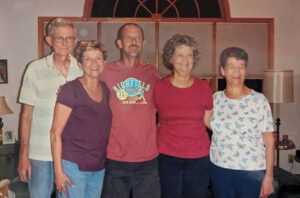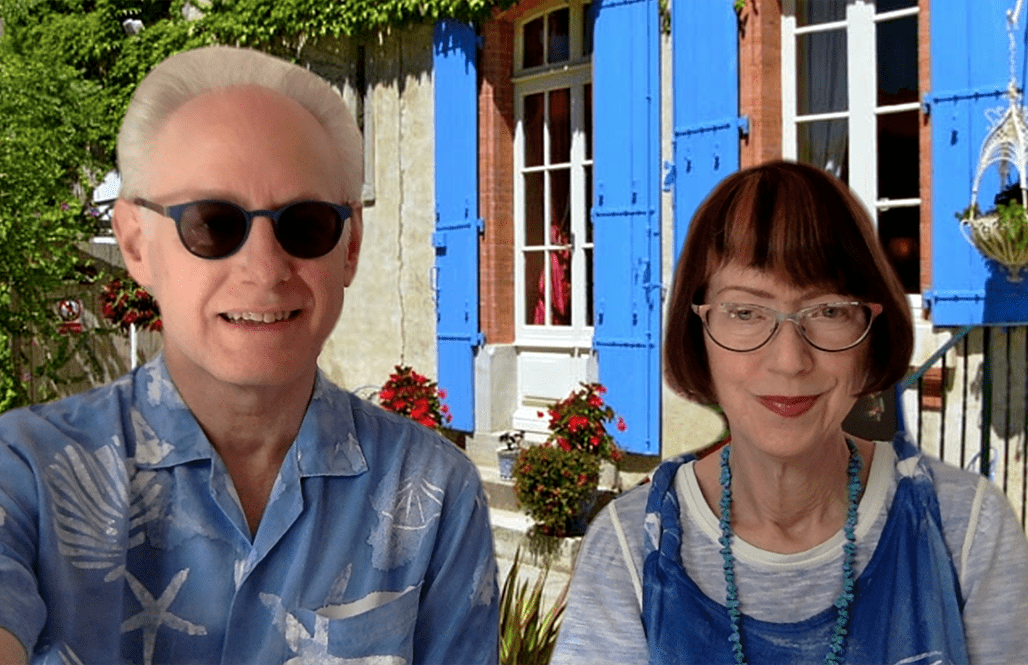Story by Robyn Murray | Video by Lance Schwartz
In the late 1800s, the world was small for women. It primarily revolved around the home, and desires to study were typically considered appropriate only if they brought women closer to finding a husband.
So when Rachel Holloway Lloyd, Ph.D., took the position of associate professor of chemistry at the University of Nebraska–Lincoln in 1887, the reverberations were profound. Lloyd, who had received her doctorate at the University of Zurich, excelled in a field that was considered entirely outside a woman’s scope.
Through her example, she inspired other women to study chemistry and helped grow the departments at UNL and around the country. She also helped build the reputation of UNL as a progressive, welcoming institution that nurtured women in their ambitions.
Lloyd’s story is one of the most meaningful in the history of the chemistry department at UNL. But up until recently, few people on campus knew of her.
“I was amazed that she had been so well known during the time that she lived, and even a couple decades afterwards, but then she had been totally forgotten,” said Mark Griep, who along with his wife, Marjorie Mikasen, is a member of the Burnett Society.
Griep, also a professor of chemistry at UNL, began researching Lloyd and learned that she was the first woman professor of chemistry in the U.S. and one of the first in the world. She had been recruited to Lincoln by Hudson H. Nicholson, the chair and sole faculty member of the chemistry department at the time.
“She had so many obstacles to overcome … she’s an inspiration to me, and that’s why I kept digging,” Griep said. “I wanted to make sure no one forgot about her again.”
Griep did extensive research, poring over microfiche articles and scientific journals. He discovered Lloyd was instrumental in the development of the beet sugar industry in Nebraska and helped the state become a national leader in beet sugar agriculture. Lloyd also found nuggets like this one from a letter written by Nicholson describing Lloyd’s presentation to the Nebraska Board of Agriculture:
“Now I suppose that some of those men labored under the impression that a woman and a wash tub ought to be inseparable. At any rate they seemed surprised that a woman could calmly walk up on the platform and read a scientific paper. You should have seen the thrill of life that ran through the assembly … At the close of the paper they applauded to the echo — none of the rest of us received that.”
Griep said the welcoming atmosphere that invited Lloyd to UNL in 1887 still exists in the department of chemistry. Griep came to UNL in 1990 and has had a successful career studying antibiotic-resistant bacterial strains. Griep knows much of his department’s success is thanks to those who built it. That’s why he and his wife planned an estate gift to support both the legacy of Lloyd and the person who had the vision to hire her, Nicholson, as well as future chemistry professors at UNL. Through a generous planned gift, Griep and Mikasen established a faculty development fund that will provide seed funding for chemistry professors to pursue their research ideas.
“So much good can come from people directing their assets or their resources toward institutions that surround them, that make their life what it is,” Mikasen said, “and for us the university was a natural fit.”
The fund is named in honor of Lloyd and Nicholson as a nod to their impact on the department.
“They used their imaginations to make this department,” Mikasen said. “It’s here today, and it started with them. So I think we need to remember that. We need to remember the founders of things.”
Griep said he encourages people to think of the impact they can make on those who come after them, just as he considers the impact of Lloyd on all those whose lives she touched. And they were many. In the descriptions of Lloyd that Griep uncovered, she was beloved by her students and inspired passions for chemistry. When she died in 1900, the acting chancellor at UNL addressed students with these words of Lloyd’s impact:
“There still lingers on this campus like a sweet perfume the memory of her devoted life. It is your good fortune to be here where these memories still influence your lives.”
"So much good can come from people directing their assets or their resources toward institutions that surround them, that make their life what it is, and for us the university was a natural fit."
Marjorie Mikasen
You may also like ...

Fighting Cancer by Giving Back
After several family members fought and succumbed to cancer, Doris Jones decided to give back to future generations by supporting cancer research.

Missouri Native Becomes A Husker Fan
Burnett Society member Paul Garnett has been a loyal Husker Athletics fan ever since he moved to Nebraska from his home state of Missouri nearly 49 years ago.

Burnett Society Spotlight: Dennis Schulte
Professor Emeritus Dennis Schulte, Ph.D., honored in 2023, and his wife Ruth Ann, are lifelong Nebraskans dedicated to education, establishing scholarships and including UNL in their estate plans.






